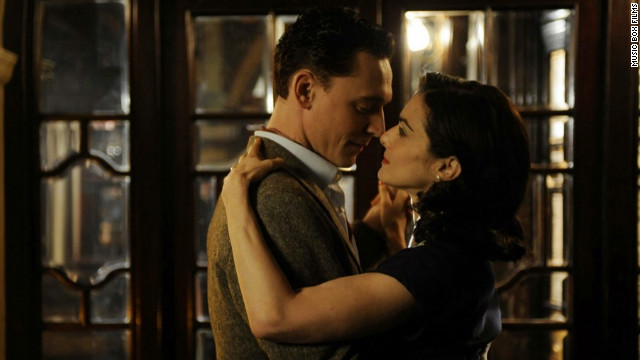
- Rachel Weisz plays Hester, a woman who leaves her marriage for a younger man
- Terrence Davies adapted "The Deep Blue Sea" from the 1952 play of the same name
- Weisz, in one of her finest performances, opens herself beautifully to vulnerability and folly
(EW.com) -- Passion defies reason in "The Deep Blue Sea."
And in this typically exquisite, nuanced, memory-infused work from master British filmmaker Terence Davies ("The House of Mirth"), we believe every minute of the torment of Hester (Rachel Weisz), a cultivated woman who's married (passionlessly) to a solicitous magistrate named Sir William (Simon Russell Beale) but is helplessly in thrall to Freddie (Tom Hiddleston from "War Horse" and "Thor"), a younger, drink-prone chap who will never love her the way she does him.
Never mind. Hester leaves her marriage for Freddie. She abandons upper-class comfort to move in with him, and when he forgets to be home on her birthday -- golf with his mates was what he fancied -- she tries to gas herself to death in their dinky flat. (That's no spoiler. It happens in the first scene.)
Davies adapted "The Deep Blue Sea" from the 1952 play of the same name by Terence Rattigan as part of the centenary celebration of the late British playwright.
It's easy to see why the material spoke to the director: With his painterly filmmaking style, his characteristic interest in the intersection between longing and restraint, and his ongoing fascination with the early postwar England of his own childhood, Davies has been able to shape the stage play to his strengths, telling the story from Hester's point of view. It helps that Weisz, in one of her finest performances, opens herself beautifully to vulnerability and folly. It's also important that, as played by Beale and Hiddleston, no man is the villain.
In interviews, Davies has given aesthetic shout-outs to both the movies of Doris Day and the quintessentially British thwarted-passion drama from 1945, "Brief Encounter." The muted yet rich palette of "The Deep Blue Sea," the calm compositions and the gently flowing pace, though, are all his.
Collectors of perfect tracking shots will be thrilled by one in a tube station during the Blitz. And fans of Davies since his early, autobiographical films "Distant Voices," "Still Lives," and "The Long Day Closes" will appreciate the inclusion of one of his favorite time-capsule gestures: a warm pub scene in which every patron, young and old, joins in singing popular tunes. So very British and so very much a lost era. EW's grade: A
See the full article at EW.com.
CLICK HERE to Try 2 RISK FREE issues of Entertainment Weekly
© 2011 Entertainment Weekly and Time Inc. All rights reserved.